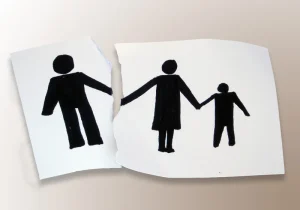
Developing a structured routine can help a person stick to their sobriety goals, make healthy decisions, and reduce the likelihood of triggers and relapse. Establishing a routine with regular sleep and support group attendance can reduce stress and help you stay sober. By sharing your checklist with a sponsor or supportive individual, you establish a valuable support network that helps you stay accountable and motivated throughout your recovery journey.
Navigating Relationships and Society

These groups foster a sense of community and shared experiences, providing a unique platform for individuals to discuss their struggles, triumphs, and ongoing efforts openly [2]. This sharing of experiences can lead to valuable insights, coping strategies, and encouragement from those who have walked a similar path. In recovery, it’s important to celebrate the big and small wins. Acknowledging your achievements is a way to honor all your efforts and progress. Plus, positive reinforcement motivates people9 to commit to a substance-free life.
- By sharing your checklist with a sponsor or supportive individual, you establish a valuable support network that helps you stay accountable and motivated throughout your recovery journey.
- That’s because many of us now use our experience asking for help with AUD to inspire others to do the same.
- Regularly assess your progress and identify any vulnerabilities or potential triggers you need to address.
- You may also experience what is commonly called sobriety fatigue, which refers to the overall exhaustion that may occur as a result of the emotional and physical stress of staying sober.
Sober Recovery Expert Author
It also enhances the ability to cope with stress and triggers effectively. Embracing the power of a daily sobriety checklist empowers individuals in recovery to create the necessary structure and stability needed to rebuild their lives. Another way to engage in supportive social activities is to volunteer or contribute to the community.

Alcohol Addiction Treatment
For many, returning to daily life after treatment means returning home to family, which is why family can be the strongest social support system. However, relationships within the family may have been impacted by substance misuse and therefore, require mending. It is generally the first step in a more comprehensive treatment plan.
With the right mindset, support, and resources, anyone can achieve long-term recovery and live a life filled with sobriety. Living a sober life involves making healthy habits and lifestyle changes. One of the most influential things is to surround yourself with positive influences and supportive people. This can include family, friends, and even support groups. Recovery from addiction is a journey that requires commitment, effort, and the adoption of healthy habits. A daily sobriety checklist serves as a valuable tool to incorporate these habits into your recovery and maintain long-term sobriety.
Social media use can cause depression, anxiety, and in some cases, suicide. Furthermore, social media is addictive, and you’re an addict. Addiction doesn’t always mean alcohol abuse or using drugs. There is a correlation between poverty and substance abuse disorders and subsequent relapses.
How to Get Sober and What to Expect
They form the foundation of the transformative journey from addiction to a healthier, more fulfilling life. It’s crucial to remember that seeking help is not a sign of weakness but a testament to one’s strength and determination to pursue a healthier, sober life. Investing in your physical health is an investment in your sober life. By integrating regular exercise into your daily routine, you create a powerful ally against the temptations of addiction. Start small, listen to your body, and gradually build up the intensity of your workouts to establish a sustainable exercise habit that supports your journey to sobriety. After overcoming withdrawal symptoms, maintaining sobriety and avoiding relapse becomes the primary focus.

Exercise also stimulates the production of endorphins, which are natural mood boosters and contribute to a positive mindset. By incorporating healthy habits into your recovery through a daily sobriety checklist, you tips to quit drinking are setting yourself up for success and growth, ultimately leading to a fulfilling, sober life. Support groups not only aid in emotional support but also serve as a platform for education and information sharing.
FAQ 6: How can giving back through service contribute to the recovery process?
It’s also crucial to understand that people following a 12-step program are not trying to rush through each step. A major component involves taking each day as its own challenge, one day at a time, instead of focusing on what you did in the past or what you may do tomorrow. It’s not a race to recover from SUD as soon as possible; it’s about taking the time you need to get the most https://ecosoberhouse.com/ out of this process. No matter how many sober living skills you learn or how prepared you are to face life in recovery, speed bumps are likely to occur. This means that you must be ready to face them and work through them without getting overwhelmed, stressed, or frazzled. It’s the same reason why you likely circled yourself with other addicts when in the midst of your addiction.






















